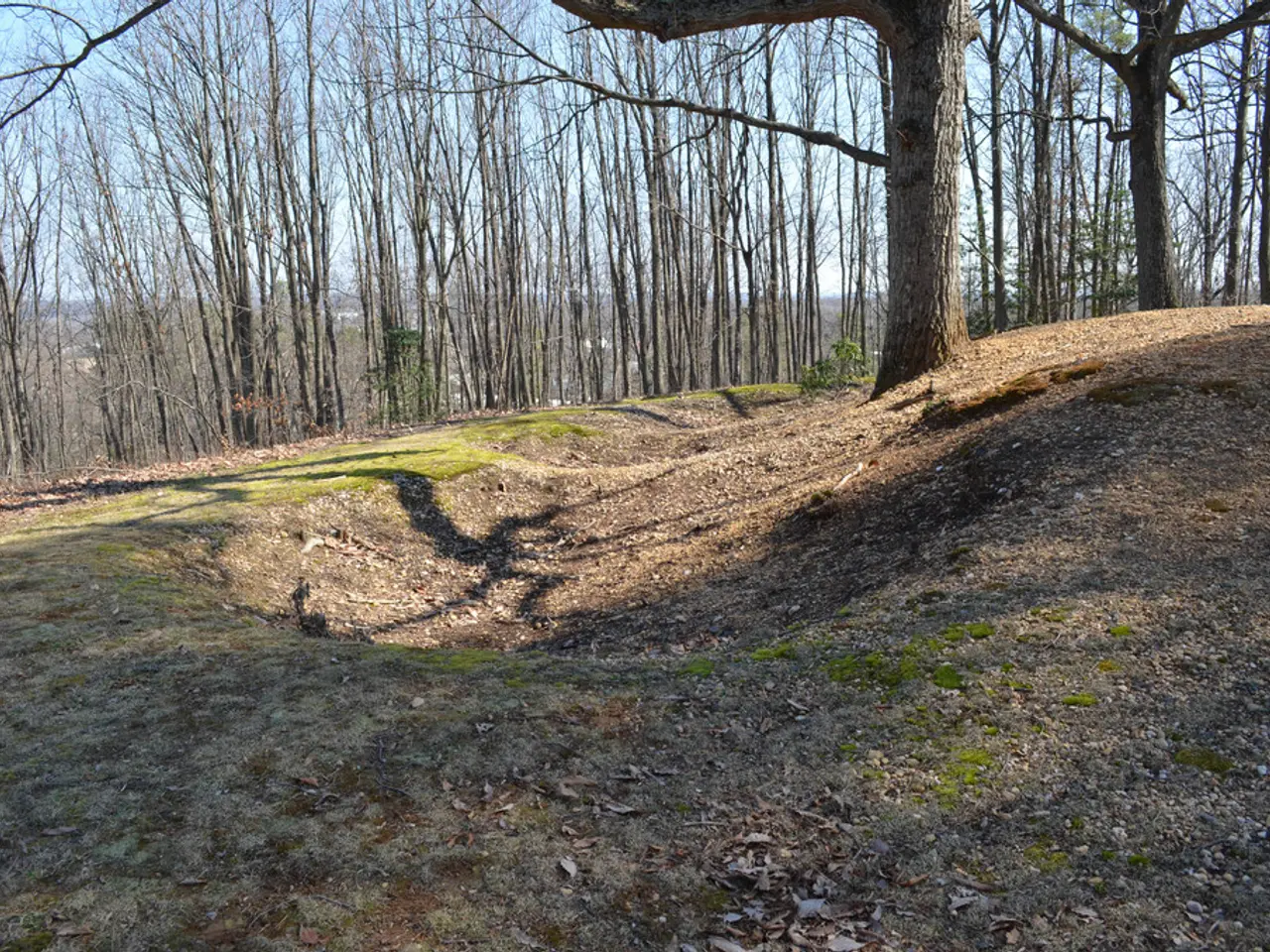Landscape-Enhancing Mulch Substitutes
Mulches, a common sight in gardens and landscapes, serve a multitude of purposes beyond just adding aesthetic appeal. From organic to inorganic, there's a mulch for every gardener's needs.
Straw, although not the most attractive option, offers a quick breakdown, enhancing aeration. This quality makes it a valuable addition to gardens, especially for those seeking a more natural approach.
The benefits of mulching are numerous. Preventing erosion, conserving soil moisture, and preventing soil from drying out and crusting are just a few of the advantages. Mulch encourages the movement of water and nutrients from the top down into the soil, providing a healthier environment for plants.
Mulch also plays a crucial role in temperature regulation. It keeps soil cooler in summer and warmer in winter, offering further protection for plant roots.
When it comes to organic mulches, they rot slowly, improving soil nutrient content, encouraging beneficial organisms, aerating soil, and enhancing soil's ability to hold nutrients. Organic mulches, such as leaf litter, homemade compost, sawdust, wood chips, grass clippings, and pine needles, can provide these benefits in a garden.
A modern choice for organic mulch alternatives is coconut coir. This sustainable option is gaining popularity due to its environmental benefits.
Cellulose mulches, like paper mulch, help prevent weeds and are becoming more readily available. Using old newspapers for paper mulch is a great way to recycle while reaping the benefits of weed suppression and warming soil.
Inorganic mulches, such as pebbles, gravel, rubber, plastic, or fabric, are less prone to weed seeds and stay in place better than organic mulches. They do not contribute to soil health and generally must be purchased, making them a more permanent solution.
Landscape fabric is another option that will break down in time. While it does not offer the same benefits as organic mulches, it can help prevent weed growth and maintain a cleaner appearance.
Inorganic mulches, such as pebbles and gravel, can also provide a more permanent solution to organic mulches, especially for those seeking a low-maintenance option.
In Germany, alternative mulches to bark mulch are used more often due to environmental concerns and sustainability. Local environmental authorities do provide recommendations for their use.
Some mulches can inhibit the establishment of weeds, keeping beds nearly weed-free. This quality makes them a valuable tool for gardeners seeking a low-maintenance garden.
Most mulches will deter soil splashing, preventing certain diseases of leaves that are harbored in the soil. This quality makes mulching a valuable tool for maintaining a healthy garden.
In conclusion, mulches offer a variety of benefits for gardens, from preventing erosion to enhancing soil health. Whether you prefer organic or inorganic mulches, there's a choice to suit every gardener's needs and preferences.
Read also:
- Improved Insulin Production, Enhanced Extracts, and Mushrooms for Taste Enhancement
- Salzgitter AG takes a green direction, focusing on environmentally friendly steel production.
- "Wireless Equipment Empowerment by RF Venue at Austin's Stone Church" or "RF Venue's Wireless Equipment Powers Austin Stone Church".
- discovery of substantial 'white gold' reserves worth $540 billion beneath California's Salton Sea, potential game-changer for U.S. energy self-sufficiency confirmed by scientists




